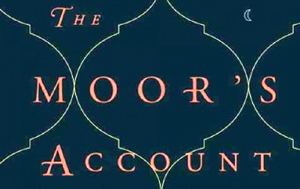| Apr 16, 2024 |
|
| Home »» Dialogues |
The Moor\'s AccountBy Laila Alami |   | ||||||||||||||
 In this stunning work of historical fiction, Laila Lalami brings us the imagined memoirs of the first black explorer of America—a Moroccan slave whose testimony was left out of the official record. In this stunning work of historical fiction, Laila Lalami brings us the imagined memoirs of the first black explorer of America—a Moroccan slave whose testimony was left out of the official record.In 1527, the conquistador Pánfilo de Narváez sailed from the port of Sanlúcar de Barrameda with a crew of six hundred men and nearly a hundred horses. His goal was to claim what is now the Gulf Coast of the United States for the Spanish crown and, in the process, become as wealthy and famous as Hernán Cortés. But from the moment the Narváez expedition landed in Florida, it faced peril—navigational errors, disease, starvation, as well as resistance from indigenous tribes. Within a year there were only four survivors: the expedition’s treasurer, Álvar Núñez Cabeza de Vaca; a Spanish nobleman named Alonso del Castillo Maldonado; a young explorer named Andrés Dorantes de Carranza; and Dorantes’s Moroccan slave, Mustafa al-Zamori, whom the three Spaniards called Estebanico. These four survivors would go on to make a journey across America that would transform them from proud conquis-tadores to humble servants, from fearful outcasts to faith healers. The Moor’s Account brilliantly captures Estebanico’s voice and vision, giving us an alternate narrative for this famed expedition. As the dramatic chronicle unfolds, we come to understand that, contrary to popular belief, black men played a significant part in New World exploration and Native American men and women were not merely silent witnesses to it. In Laila Lalami’s deft hands, Estebanico’s memoir illuminates the ways in which stories can transmigrate into history, even as storytelling can offer a chance for redemption and survival. You can buy the book from Amazon and other retailers |

|
||||||||||||||
 |
|||||||||||||||
|
|||||||||||||||
|
|||||||||||||||
|
|
|||||||||||||||
| |
|||||||||||||||

|
|||||||||||||||
|
About Us
Privacy Policy
Terms of Use
Advertise on Wafin.com
Spread the Word
Site Map |
|||||||||||||||
|
© Copyright 1999-2024, Wafin.com; All rights reserved. Wafin.com is a subsidiary of the Gourad Group LLC.(www.gourad.com) |
|||||||||||||||



